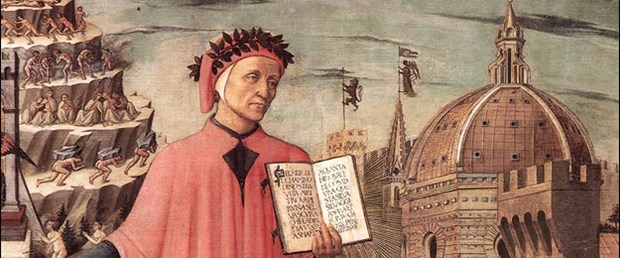American politics is in flux. Apart from deep-blue enclaves, once-dominant progressivism is on the ropes. Globalization-friendly elitist conservatism has also lost influence, including among self-identified conservatives. Where, then, are we headed?
To understand the civic landscape, it’s helpful to divide political philosophies into four basic categories: socially liberal, socially conservative, economically liberal, and economically conservative.
Social liberalism affirms that the state should permit, if not empower, individuals to live however they like, with no regard for their actions’ consequences so long as everyone involved consents (born and unborn children cannot consent and thus have less moral standing within this worldview). Therefore, it supports sexual promiscuity, transgenderism, abortion, surrogacy, euthanasia, and lax drug-use laws.
Social conservatism, on the other hand, recognizes that individuals’ “private” acts can both hurt the innocent and have adverse social effects. Consequently, it promotes traditional values, including protecting all human life, upholding the biological reality of women and men, regulating access to harmful substances, encouraging waiting until marriage to have sex, and supporting natural families (one man, one woman, open to new life, in the same household) as society’s normative foundation. Its governing principles include consent but, more expansively, are concerned with protecting human dignity and advancing the common good.
Economic liberalism believes the state has the obligation to provide access to social benefits, including health care, education, job protection, and, when needed, welfare. Economic conservatism, in contrast, seeks to minimize state involvement with, and expenditures on, social goods, emphasizing that, apart from providing security and enforcing contracts, the government should have as small a regulatory and fiscal footprint as possible.
There are key issues like freedom of speech, immigration, the regulation of technology, energy and the environment, and isolationist vs. interventionist foreign policy that do not neatly fit into this classification. Yet, broadly speaking, political philosophies tend to fall into four groupings: 1) socially and economically liberal, 2) socially liberal and economically conservative, 3) socially and economically conservative, and 4) socially conservative and economically liberal.
Progressivism (socially and economically liberal) and elite conservatism (socially and economically conservative) have been tried in recent decades and been found disastrously wanting. In addition to generating social chaos, progressivism’s moral libertinism undermines the potential benefit of its liberal economic policies by dissolving the virtues—honesty, self-control, thriftiness, prudence, fairness, and a concern for authentic justice—that enable public expenditures to actually serve the common good, a reality the corruptly inept governance of many American cities tragically exhibits.
Similarly, the ruinous consequences of elite conservatism’s hypocritical combination of maximizing economic efficiency by off-shoring industries with promoting “family values” (few things undermine household stability like losing a job) are on sad display in many destitute, fentanyl-ravaged rural communities.
To the extent that classical liberalism (socially liberal and economically conservative) has been put into practice, it tends to create a mutant amalgamation of the vices of both progressivism and elite conservatism, leading to both moral degeneracy and massive economic inequality.
The Catholic social thought tradition (socially conservative and economically liberal) offers an alternative. Grounded in two foundational beliefs—1) all human beings have inherent dignity independently of the state, and 2) the purpose of the state is to protect and foster the development of that dignity—Catholic social thought rejects social liberalism’s moral licentiousness not because it disdains freedom but, rather, because it values it so highly.
Being free is not only the freedom from assault, it is also the freedom to realize your full intellectual, moral, and spiritual potential. One of the necessary ingredients for protecting both kinds of freedoms is living within a pro-life society that supports traditional families with traditional values. One of the greatest predictors of becoming a high-functioning, socially adept, successful, and happy adult is growing up in a stable two-parent home. A society that rejects this sociological truth is living on borrowed time.
Similarly, Catholic social thought rejects economic conservatism, not because it is unconcerned with fiscal responsibility but because it repudiates characterizing the economy as a collection of isolated individuals whose only overlapping interest is the generation of ever-higher levels of personal wealth.
Catholic social thought understands the economy as a tool to serve individual dignity and the common good. Even if GDP is rising, an economy that fails to enable everyone who plays by the rules to care for their families and be sheltered from avoidable catastrophes like medical bankruptcy, food insecurity, involuntary homelessness, and prolonged unemployment is failing to do its job. Framing the economy in this way is not “anti-capitalist.” Indeed, Catholic social thought has long championed the benefits of the free market while recognizing that, because every person has dignity, society has a limited but real responsibility to provide equality of opportunity for all.
Though the current administration has policies that violate Catholic teaching, like its support for human life–destroying IVF, there are indications that it is both more socially conservative and economically liberal than previous governments.
Socially, the administration’s commitment to protecting religious freedom, including the freedom of pro-life religions that adhere to traditional values, and its rejection of transgender ideology, especially in schools, are welcome departures from the previous presidency. Economically, its emphasis on raising wages, preventing job losses to off-shoring, and even supporting some unions—a policy approach that vice president JD Vance has referred to as “working-class capitalism”—also marks a refreshing break from the past.
It’s unrealistic and electorally futile to expect any administration to perfectly reflect the principles of Catholic social teaching. However, these examples suggest that the American public might, indeed, be ready to embrace a more pro-life, pro-child, pro-family, and pro-worker agenda. That would bode well for the future of our country.
- Matthew Petrusek
Matthew R. Petrusek, PhD is the Senior Director of the Word on Fire Institute and its Professor of Catholic Ethics. He has authored/edited several books, including Evangelization and Ideology: How to Understand and Respond to the Political Culture; Jordan Peterson, God, and Christianity, The Search for a Meaningful Life; Ethics and Advocacy: Bridges and Boundaries; and Value and Vulnerability: An Interfaith Dialogue on Human Dignity. Petrusek lectures broadly in both English and Spanish on moral philosophy/theology, politics, social issues, and the Catholic intellectual tradition.






